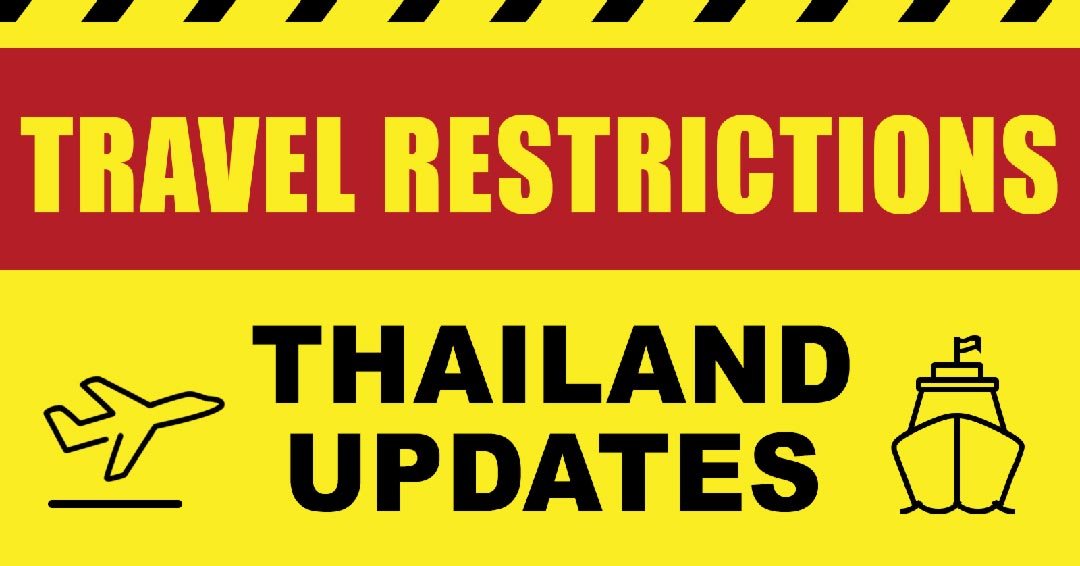
Traveling these days with Covid-19 cases still rising is a risk to be taken at this point. It was advised by the Centers for Disease Control and Prevention (CDC) to avoid travel unless necessary. But it has been a year and a half since the world was and still is, fighting the virus. People were at a loss when it came to gaining income, and the ability to travel and have fun was taken from them too. In general, the economy is at loss with the desperate fight, closing their borders, and the unexpected closing of unessential businesses, to win against the Covid-19.
The Kingdom of Thailand experiencing that economic loss mentioned in exchange for being one of the few countries to successfully manage the virus outbreak. Last October 2020, the country has decided to revitalize its economy by reopening its gates with the approval of the CDC. On 2021, July 1 and 15, they have opened a few of their best vacation spots for foreigners under a program called “Sandbox” on Phuket, Koh Samui, Koh Pha Ngan, and Koh Tao.
With the beautiful beaches, delicious cuisines, amazing history and culture, and wonderful people, it is hard to resist taking the opportunity to have a vacation after all the long stay at their individual homes. Here are the Thailand travel restrictions you must know to help you out in your travels in the Kingdom.
Eligible Travelers
Travelers who are from the 64 countries listed in the Visa Exemption List are allowed to enter Thailand without obtaining a visa if the purpose of the travel is tourism. However, they are only allowed to stay in the Kingdom, not over 45 days. Tourists can extend by requesting at the Thai Immigration Office, they can extend up to 60 days to stay depending on the reason. For some countries, some of them are allowed to stay up to 90 days.
Travelers that are from the countries not included in the Visa Exemption List are required to apply for Special Tourist Visa (STV) which will allow them to stay up to 90 days. This visa can be obtained in a Thai Embassy or through the Thai Consulate located in your own country.
Requirements and Restrictions
To enter Thailand, here are the following restrictions and required documents you must have and know:
- From an Approved Country. To enter Thailand, travelers must come from countries that are low risk or moderate risk and they must have stayed there for 21 days before the departure.
- Certificate of Vaccination. They must have a valid Vaccine Certificate and have been completely vaccinated with a vaccine approved by Thailand’s Ministry of Public Health (MoPH) or the World Health Organization (WHO) for at least 14 days. When traveling with fully vaccinated parents or guardians, children under the age of 18 are not obliged to get vaccinated.
- A negative result of the RT-PCR test. Within 72 hours of the trip schedule, all passengers, including children, must have received a negative Covid-19 test using the RT-PCR method.
- Covid-19 Insurance. All travelers must have medical insurance with COVID-19 treatment coverage of at least $100,000.
-
Certificate of Entry (COE). To allow a foreign visa holder to enter Thailand onboard, a letter from the Thai Embassy or Consulate is required. This letter will be given to airline personnel before departure and to an immigration officer when you arrive in Thailand.
Here are the documents needed for approval or issuance of the COE:
- A valid passport with 6 months validity.
- Vaccination Certificate.
- COVID-19 health insurance with minimum coverage of $100,000.
- Air ticket
- Fully paid booking of Alternative State Quarantine Hotels (ASQ) or SHA+ hotels
- Proof of payment of COVID-19 testing; the number of tests depends on the intended duration of stay.
Note: It is suggested to apply for COE 15 days before departure.
- Payment Confirmation. They must provide a copy of the payment confirmation for no less than a 14-night stay and RT-PCR tests at hotels approved by the Ministry of Tourism and Sports (MoTS) or the Tourism Authority of Thailand (TAT). In the case that the length of stay is less than 14 days, travelers must present proof of purchased return air travel.
Upon Arrival
Travelers must spend at least 14 nights in the authorized area, ASQ, and SHA+ hotels. If staying less than 14 nights, they must fly out of Thailand by a direct international flight or a dedicated flight by Bangkok Airways to connect with a direct international flight at Bangkok’s Suvarnabhumi Airport.
Also, upon arrival, travelers must follow procedures of their travel stay on the island:
Day 0 (Arrival)
- Travelers will undergo entry screening and Immigration and Customs procedures.
- Travelers will download Thailand Plus Application and register.
- First RC-PCR test while at the airport and stay at the Samui+ Extra hotel that you booked.
Day 1 to 3
- Travelers can leave the hotel room, roam around within ASQ or SHA+ hotel grounds. (If one has a negative result from the first test).
Day 4 to 7
- Travelers are free to do any activity and can travel within designated seal routes.
- This will also be the time travelers have their 2nd RT-PCR test and if the result is negative, one can check out at the ASQ or SHA+ hotel that they stayed in.
Day 8 to 14
- The traveler can and will continue to stay at the ASQ or SHA+ hotel that they booked.
- This will also be the time that the traveler will have their 3rd RT-PCR test and if the result is negative, the traveler can freely travel around to other Thailand destinations.
As of now, traveling to Thailand is in no doubt a long process and in need of patience. With the continuing increase in the number of cases in the Kingdom, it is important to follow guidelines for the safety of your travels. Thailand has Phuket and Samui Sandbox to offer as of the moment, but as planned, there will be more to open. Expect Krabi, Chiang Mai, Chon Buri, and Buri Ram to open by October assuming there will be no setbacks on the previous programs or plans.



